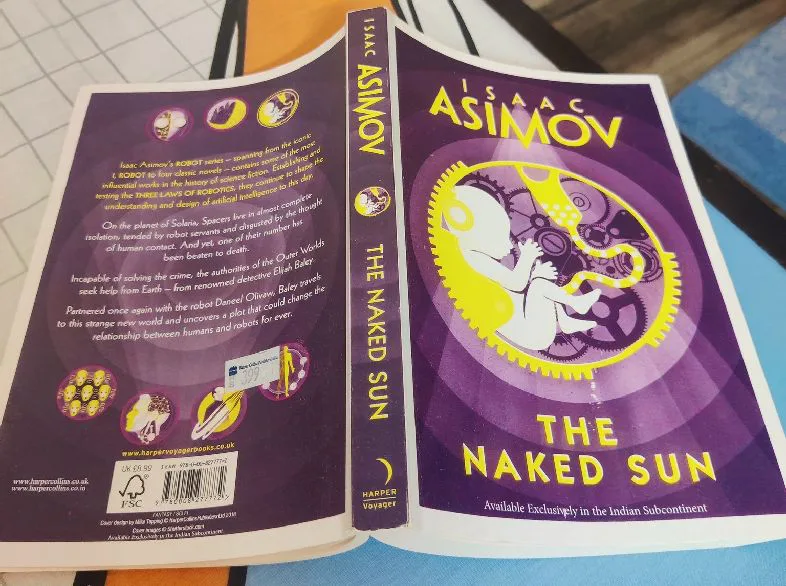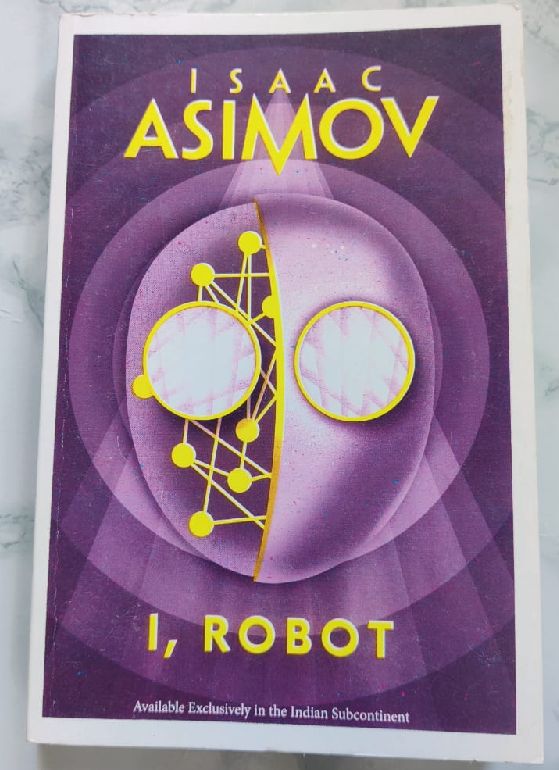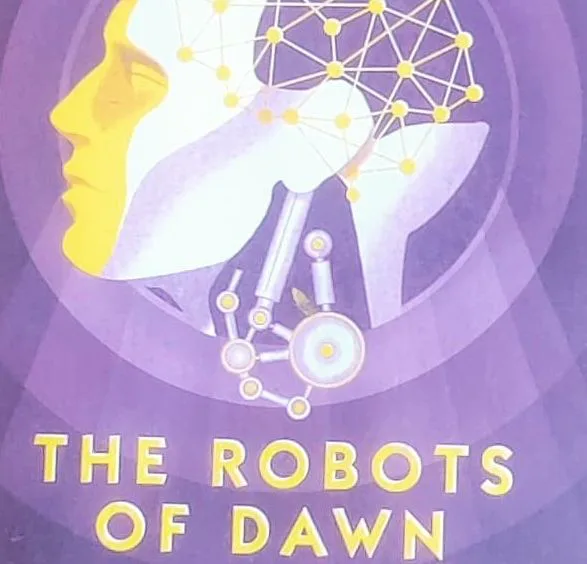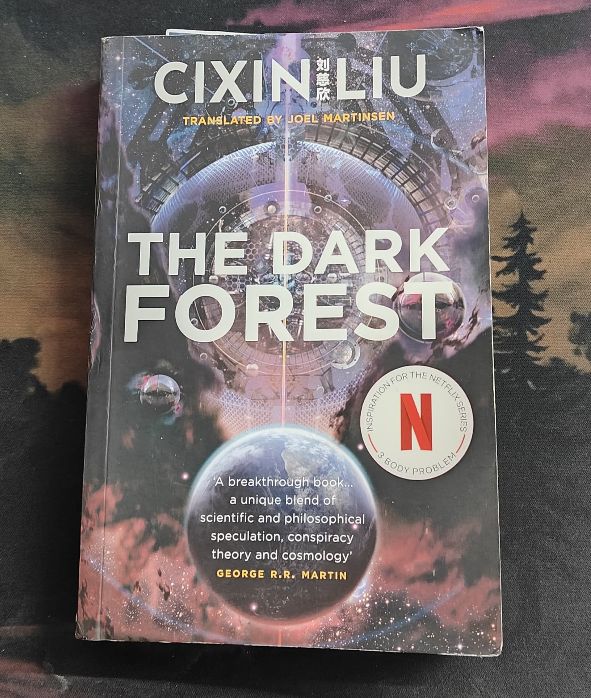I usually have three to four books on the go at any given time. There’s a rhythm to it, a kind of balance. Typically, it’s one work of literature, one non-fiction, something light for the in-between moments, and always, always a science fiction novella. This time, I picked up Let’s Get Together by Isaac Asimov, first published in 1957. I’m a huge, huge, and huge fan of Asimov’s works.
Search Results for: Isaac Asimov
Book Review: The Naked Sun by Isaac Asimov
The Naked Sun is a captivating and enjoyable murder mystery that remains highly readable, even after several decades. It was published in 1957. And it is the second instalment in Asimov’s ‘Robot’ series, succeeding The Caves of Steel, which was released three years prior. Asimov here presents a plethora of thought-provoking concepts, by exploring the boundaries of science, space, technology, psychology, and societal dynamics.
Book Review: I, Robot by Isaac Asimov
I, Robot by Isaac Asimov is a collection of short stories written between 1940 and 1950 and were composed together in 1950. To create an ethical system for the co-existence of humans and machines, Asimov, laid the foundation of the three laws of robotics, which were:
Book Review: The Gods Themselves by Isaac Asimov
Energy transfer between parallel universes, the idea is enough for any science fiction fan to pick up and read this awesome piece of work. The Gods Themselves is one of the earliest and fantastic read on multiple universes, nuclear forces, and Big Bang. The fundamental idea of why Big Bang occurs and the repercussions of disturbing the laws of physics that govern universe(s), are explained in the most simplified and narrative style by Isaac Asimov.
Book Review: The Robots of Dawn by Issac Asimov
“The Robots of Dawn”, published in 1983, is the third novel in Asimov’s Robots series, following “The Caves of Steel” (1954) and “The Naked Sun” (1957). Isaac Asimov is one of my favorite science fiction writers. Even after nearly four decades, his work remains incredibly relevant today. His plots are fast paced and characters feel so lifelike, even the robots, which are portrayed with such depth and realism. With positronic robots in the mix, he crafts stories that explore the loopholes in the Three Laws of Robotics, which he himself…
Book Review: The Dark Forest by Cixin Liu
The Dark Forest is the second book in the “Remembrance of Earth’s Past” trilogy, written by Cixin Liu in 2008. Like its prequel, The Three-Body Problem, this one is also an interesting mix of particle physics, geo political issues, virtual reality games along with an alien contact. The first book of the series lays the foundation of something epic that is bound to happen. Ye Wenjie is not happy with contemporary humanity and believes that people are responsible for her father’s death. In a fit of rage, she invites an…
Interview: Dr. Jay T. Lennon, Microbiologist at Indiana University, Bloomington
Meet Dr. Jay T. Lennon. Within the intricate tapestry of microbiology, a realm of microorganisms thrives, weaving the intricate threads of ecosystems, interactions, and even human health. Dr. Lennon, a distinguished luminary in the field of microbial ecology, has passionately dedicated his career to unraveling the enigmatic world of these microscopic life forms. He emerges as an insightful figure who delves deep into the intricate relationships governing microbial communities.
Interview: Dr. Kai Wang Materials Scientist at The Penn State
Dr. Kai Wang is PhD, Principal Investigator, and Assistant Research Professor at the Department of Materials Science and Engineering, Penn State. His recent work on intelligent and efficient panchromatic imaging for artificial retina biotechnology, caught our attention and so we tried to touch base with him for an interview. We got lucky, as he agreed to spend some time with us. Dr. Wang, here, talks about his quest to understand the mechanisms of cognition within the neural topological structures of the brain. And how these natural intelligences can be influenced…








